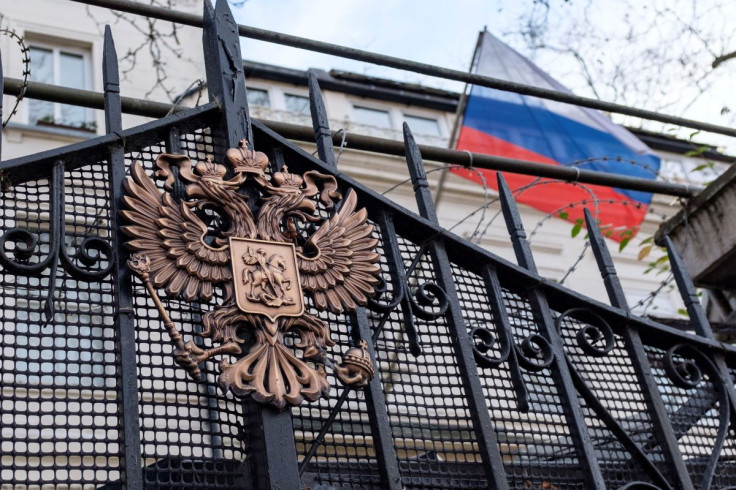Explainer-How Russia Could Use Bankruptcy Law To Punish Foreign Companies

As foreign companies seek to exit Russia over the war in Ukraine, they face the prospect that Russian bankruptcy law could be used to seize assets and even lead to criminal penalties.
Here is how that could work:
HOW DOES RUSSIA'S BANKRUPTCY LAW DIFFER FROM BANKRUPTCY LAW IN THE UNITED STATES?
In the United States, bankruptcy laws are meant to give indebted companies a fresh start.
Distressed companies in the United States usually enter bankruptcy willingly and the law lets them retain existing management and control over assets.
Russia's law, however, generally prioritizes the needs of creditors who are owed money. This means creditors, including the Russian government, can force a company into involuntary bankruptcy and oust its management.
Some legal experts said foreign companies fear Russian creditors could abuse that process to install leaders willing to sell their assets to business rivals or companies aligned with the Russian government.
"In the late 90s and early aughts, this was often used as the device to raid companies" in post-Soviet Russia, said Paul Stephan, a professor at the University of Virginia School of Law and expert in the Soviet and post-Soviet legal systems.
CAN A BANKRUPT COMPANY FACE CRIMINAL PENALTIES IN RUSSIA?
Yes. In the United States, bankruptcy is purely civil. But Russia's law carries criminal penalties for some bankruptcy-related offenses, such as hiding assets.
Camel and Lucky Strike cigarette maker British American Tobacco Plc has expressed concern that its exit from Russia could be viewed as a criminal act that leads to bankruptcy-related charges for local management.
It would not be the first time the Russian government has threatened criminal bankruptcy charges against foreign companies and investors. Russia has repeatedly asked Interpol to arrest money manager Bill Browder, alleging charges against him including deliberate bankruptcy and tax evasion.
Browder has said that the "bogus warrants" are part of a vendetta by corrupt officials in the Russian state. Interpol has not acceded to Russia's arrest demands.
HAS RUSSIAN BANKRUPTCY LAW BEEN USED IN THE PAST TO PUNISH COMPANIES FOR POLITICAL REASONS?
Yes. Tax debt has been used to drive companies into bankruptcy in Russia, in a way that penalizes foreign investors, according to an international arbitration court.
Yukos Oil was forced into bankruptcy in 2006 after its former chief, Mikhail Khodorkovsky, fell out with Russian leader Vladimir Putin and the Russian government demanded billions in back taxes.
Most of Yukos' assets were absorbed by the Kremlin's flagship oil producer Rosneft, but international shareholders argued that the Russian tax demands were illegitimate. The Permanent Court of arbitration in The Hague agreed, finding in 2014 that the Kremlin had manipulated the legal system to bankrupt the company and take Khodorkovsky's assets.
Since the Russian government owns major energy companies, it could use energy bills as well as taxes to force a company into bankruptcy, experts said.
"If the government was using that power strategically, it may well have the ability to influence local courts, to influence local managers, and force a sale of the company that would oust foreign owners," said Jason Kilborn, a law professor at University of Illinois Chicago.
IS THERE A SAFE WAY FOR COMPANIES TO LEAVE RUSSIA?
For companies that want to leave Russia, Russian officials have suggested a "fast-track" bankruptcy procedure that would put local managers in charge of their assets and operations.
Still, some businesses are concerned that Russian bankruptcy law will be used to retaliate against the companies that are leaving, experts said.
"If the hammer really comes down, you just hope that you've gotten as many people as you have out of the country, and you've minimized your asset risk in the country," Stephan said.
Russia's ruling party has recently proposed legislation that would allow the government to nationalize the assets of certain companies intending to leave Russia.
That proposal would build on the bankruptcy law's procedure for installing court-appointed external management, but could be wielded against companies with no debt, experts said.
© Copyright Thomson Reuters {{Year}}. All rights reserved.





















